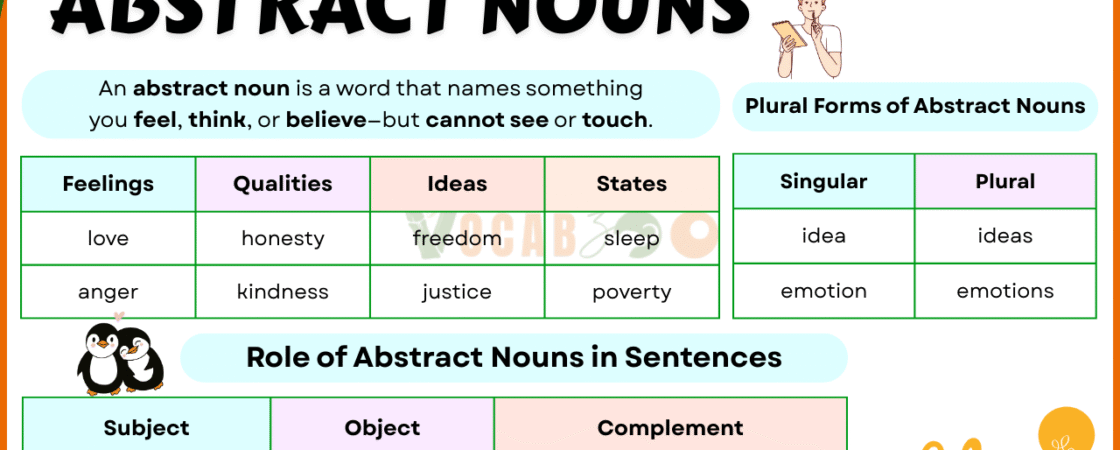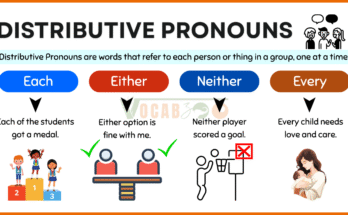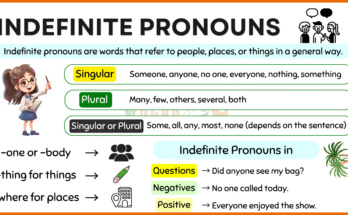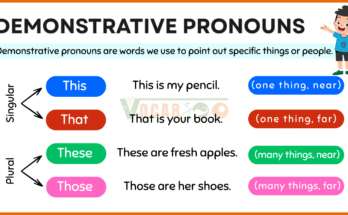If you’re learning English, one important part of speech to understand is the abstract nouns. These nouns name ideas, feelings, or qualities—things you cannot see or touch, but they are just as important as concrete nouns. In this blog post, you will learn about abstract nouns through simple definitions, examples, usage in sentences, and more to help you use them correctly and with confidence.
What is an Abstract Noun?
An abstract noun is a noun that refers to an idea, quality, or feeling—something you cannot touch, see, or hear.
It is not physical, but it exists in the mind or as a concept.
In Simple Words:
An abstract noun is a word that names something you feel, think, or believe—but cannot see or touch.
Role of Abstract Nouns in Sentences
Abstract nouns work just like other nouns in grammar. They can be:
- Subject → Honesty is a good trait.
- Object → She values kindness.
- Complement → His greatest strength is patience.
They help you talk about thoughts, emotions, and qualities in life.
Examples of Abstract Nouns
Here are some common abstract nouns in English:
| Feelings | Qualities | Ideas | States |
|---|---|---|---|
| love | honesty | freedom | sleep |
| anger | kindness | justice | poverty |
| happiness | bravery | knowledge | health |
| fear | intelligence | religion | weakness |
| excitement | patience | belief | education |
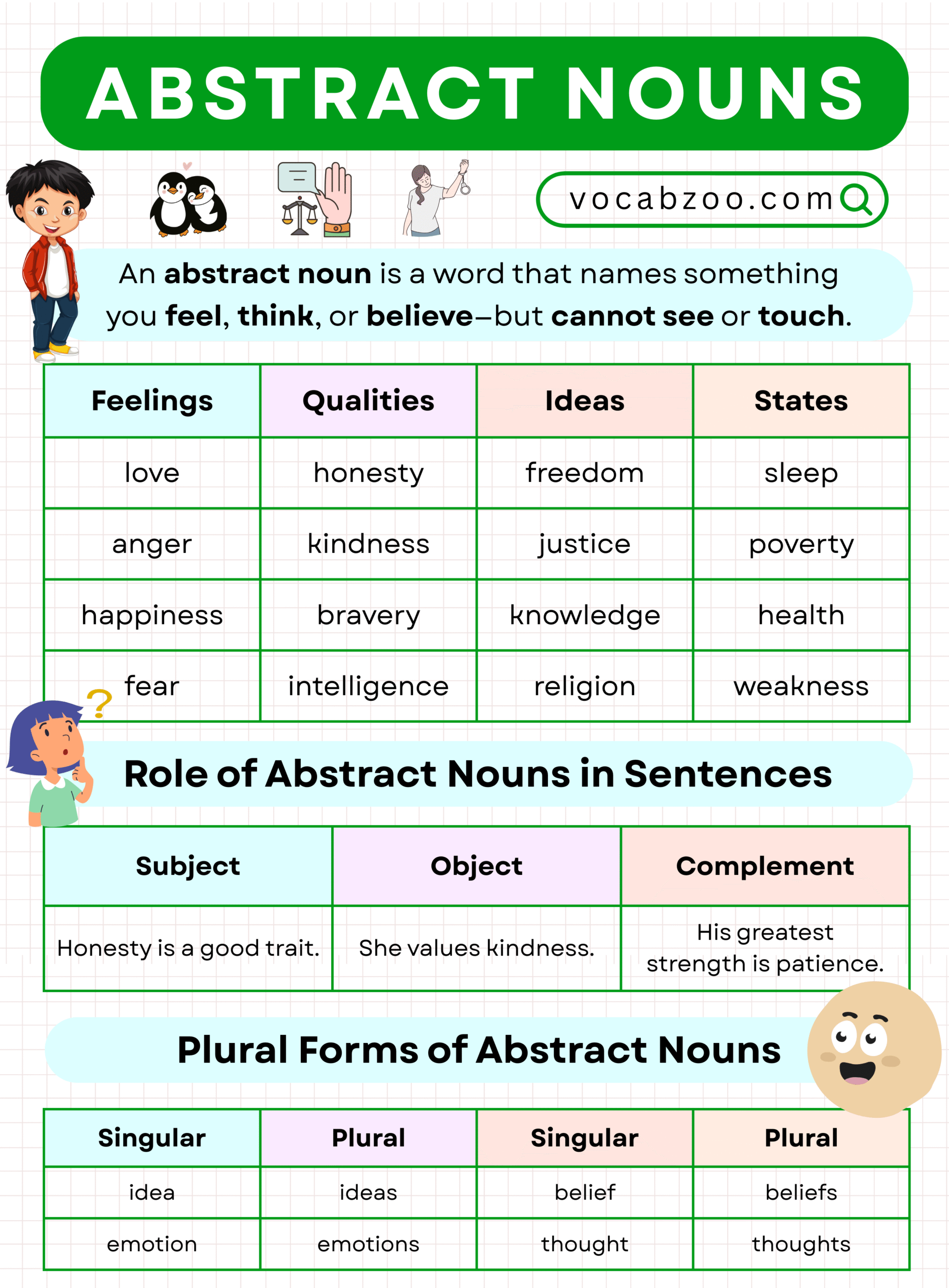
Sentences Using Abstract Nouns
- Love is the most powerful feeling.
- She showed great bravery in the accident.
- Education is the key to success.
- His honesty earned everyone’s trust.
- I need some peace and quiet.
- Happiness comes from within.
These sentences show how abstract nouns are used to talk about things we cannot touch, but we know they are real.
Mini Quiz: Find the Abstract Noun
Choose the abstract noun in each sentence:
- He felt a deep sadness after the news.
- Their friendship is strong.
- The sky turned dark before the rain.
- Her intelligence is impressive.
- We believe in justice for all.
Answer Key:
- sadness
- friendship
- (No abstract noun)
- intelligence
- justice
Short Story Using Abstract Nouns
Ali always believed in kindness and honesty. He never told a lie, even when it was hard. His friends respected his bravery and trusted his judgment. One day, he showed great patience while helping a stranger. That moment filled his heart with happiness and peace.
Abstract Nouns Used:
kindness, honesty, bravery, judgment, patience, happiness, peace
Concrete vs Abstract Nouns
Some nouns can confuse learners. Here’s a comparison table:
| Word | Is it Abstract? | Reason |
|---|---|---|
| love | ✅ Yes | Feeling—not touchable |
| apple | ❌ No | You can touch and eat it |
| beauty | ✅ Yes | Concept, not physical |
| chair | ❌ No | You can sit on it |
| education | ✅ Yes | System/idea—not a visible thing |
| music | ❌/✅ Both | Sound is physical, but emotion is abstract |
Plural Forms of Abstract Nouns
Most abstract nouns are uncountable and don’t have plural forms.
❌ Incorrect: We need three kindnesses.
✅ Correct: We need more kindness.
However, some can be plural when used in special contexts:
| Singular | Plural Use (Rare) |
|---|---|
| idea | ideas |
| belief | beliefs |
| emotion | emotions |
| thought | thoughts |
Tip: Only use abstract nouns in plural if they refer to different types or examples of that noun.
Tips to Remember Abstract Nouns
✔ If you feel it but can’t touch it → it’s abstract.
✔ Use them to talk about emotions, thoughts, and qualities.
✔ Don’t use a/an or numbers with uncountable abstract nouns.
✔ Practice using them in real-life sentences.
Read More
